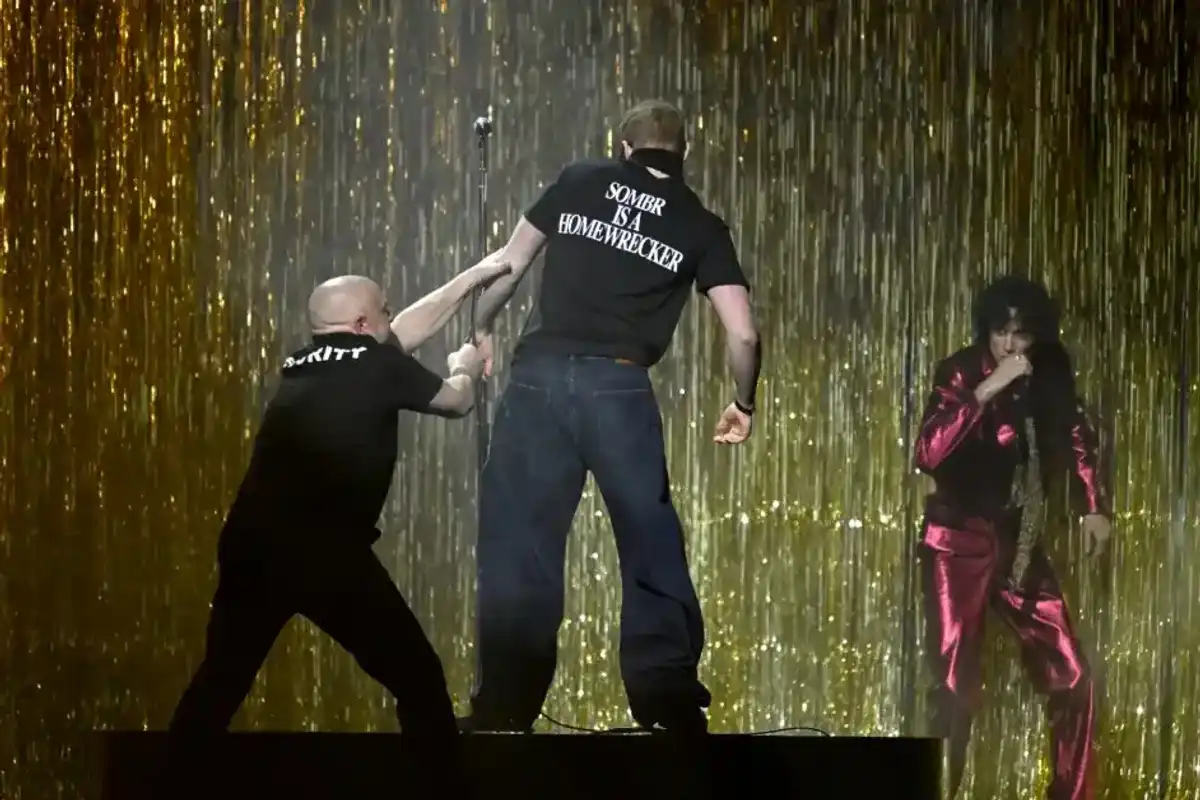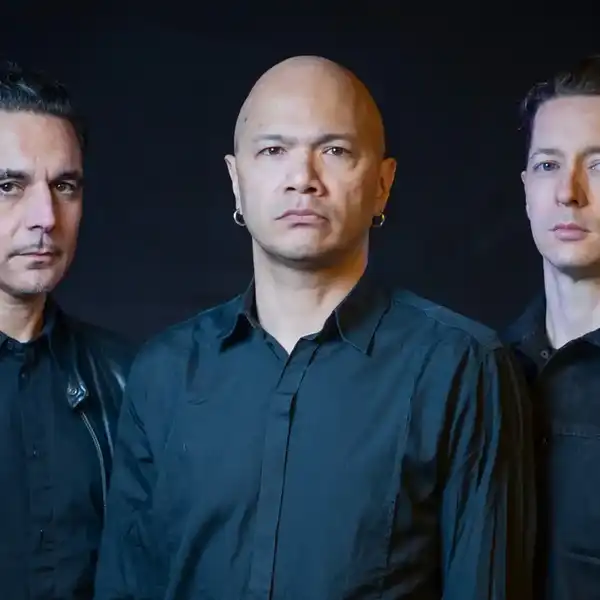Five Questions With… Arkells' Max Kerman
One of Canada’s biggest bands hunkered down in the pandemic and created a stripped-down new album, Campfire Chords. Here the group’s frontman explains the mandate and method behind the quarantine record, the song selection process, their use of social media, and thoughts about a return to the road.

By Jason Schneider
Living up to their reputation as one of Canada’s hardest working bands, it’s no surprise that Arkells haven’t allowed the pandemic to slow them down. In fact, the veteran Hamilton rockers have just released a new album, Campfire Chords (Universal Music Canada), that’s perfectly in tune with this moment when a lot of us have been huddled together with loved ones and drawing strength from our shared experiences.
Campfire Chords presents 17 of Arkells’s best-known songs—along with the new track Quitting You—in warm and inviting acoustic arrangements, something the band has never attempted before on record. It was a direction they chose to take after pandemic restrictions imposed earlier this year forced them to reassess the work they’d already started on a new album in their more familiar electric guise.
The results helped them rediscover the singer/songwriter spirit that originally inspired many of these songs, which fans now regularly sing along to in increasingly large numbers at Arkells concerts. With that aspect of the band now temporarily on hold, Campfire Chords aims to give those fans a more intimate connection.
Listeners are able to experience that as well on Saturday, Aug. 29 when Arkells will be featured in a special edition of the Budweiser Stage at Home weekly TV concert series, airing on Citytv and Citytv.com, as well as live-streamed on Live Nation’s Live From Home platform.
We spoke with Arkells' front person Max Kerman to get the inside scoop on Campfire Chords, and for more info go to arkellsmusic.com.
Campfire Chords may be one of the first "quarantine" albums. Now that it's out, how do you look back on how it all came together?
It’s definitely a case of “one thing leads to another,” and there’s a pretty direct line I can draw from how we ended up making the album. In mid-March when the world went into quarantine, I started doing these daily Instagram sessions called “Flatten The Curve Music Class” with the intention of showing Arkells fans how to play our songs on an acoustic guitar. It ended up being a really fun way to feel connected to everyone while we were stuck inside. The daily feedback from people watching and hanging was really positive, and during many of the classes, people asked if we’d ever make an acoustic record of our material.
We had just put out Years In The Making, so we started there. From home, the band all recorded their parts for an acoustic version of that single. At first, we were unsure if the end product would meet our artistic expectations, but the more we dug in, the more we realized the freedom of home recording. Not being on a studio clock is really nice.
As the spring wore on and there were no shows in the immediate future, we knew we needed to keep busy and stay creative. Using the Years In The Making acoustic version as a template, we set out to make an entire record of stripped back material from our catalogue. We even came up with a new one—Quitting You—along the way. Every project has its own set of challenges, and we had to scrap a few ideas, but overall it was pretty smooth. [Keyboardist] Anthony [Carone] deserves all the credit for assembling the material and arranging the tunes for the mix. He did more work than anyone on the music.
Were there any specific criteria in choosing the songs?
The majority of our music translates really well to a stripped-back setting. All of our big rock ‘n roll songs start with an acoustic or piano, so heading back to that place isn’t too much of a stretch. Finding the right “rhythm” for the stripped back arrangements is usually the trick, and there were a few songs that proved to be harder to get comfortable with. We scrapped American Screams for that reason. We wanted a healthy mix of our bigger songs and deep cuts; songs that would be fun to listen to around the campfire, or in your back yard, or at a park. We added some lost verses to I’m Not The Sun and Whistleblower that never made the original version. There were some arrangements that surprised us—A Little Rain developed this big gospel energy.
The music community seems to have pulled together during the pandemic. Do you feel artists are supporting each other more these days?
Yeah, everyone is in the same boat. Every touring artist has spent years crafting their art, and to have that part of our professional lives taken away is a difficult thing for us right now. There have been bright moments though. I’ve really enjoyed seeing artists talk and hang through live chats. I’m sure there will be some good music that’s written during this period that we’ll hear soon. Our bassist Nick is a big believer that artists often make some of their best work when times are tight and that opulence doesn’t necessarily make the art better. And I’m hoping he’s right!
You guys have worked hard to build your audience through social media. Has that intensified over the past few months?
Social media has always been a part of our daily work diet, but we only interact with it in ways that feel entirely authentic and fun to us. I enjoy being on Twitter and Instagram and don’t feel burdened by it. But ultimately it’s a complementary tool to what we really do, which is play shows and write songs. There is absolutely no way to compare an acoustic thing on a live stream to an Arkells' concert experience. I kind of hate the Zoom call/split-screen performances, and understand that everyone is just trying to do their best, but we’ve largely avoided doing those for now as they aren’t creatively rewarding. It’s taken some real brainstorming and many long walks with our manager Ashley, but we’ve only done things that genuinely fire us up, like playing a song for one of our fans on her lawn to celebrate her graduation, or doing an instrument donation to a local high school with Raptors head coach Nick Nurse. Those were fun and gratifying.
You've started scheduling tour dates for 2021. What are your thoughts about (hopefully) going back out on the road?
I don’t have any other thoughts than what public health officials tell us. If they give us a thumbs up, then we’ll be out there immediately, and nothing will make us happier. But right now, the last thing we need is musicians like myself pontificating on epidemiological outcomes. Campfire Chords lends itself to an Arkells live set of any size as soon as we can get rolling.

















